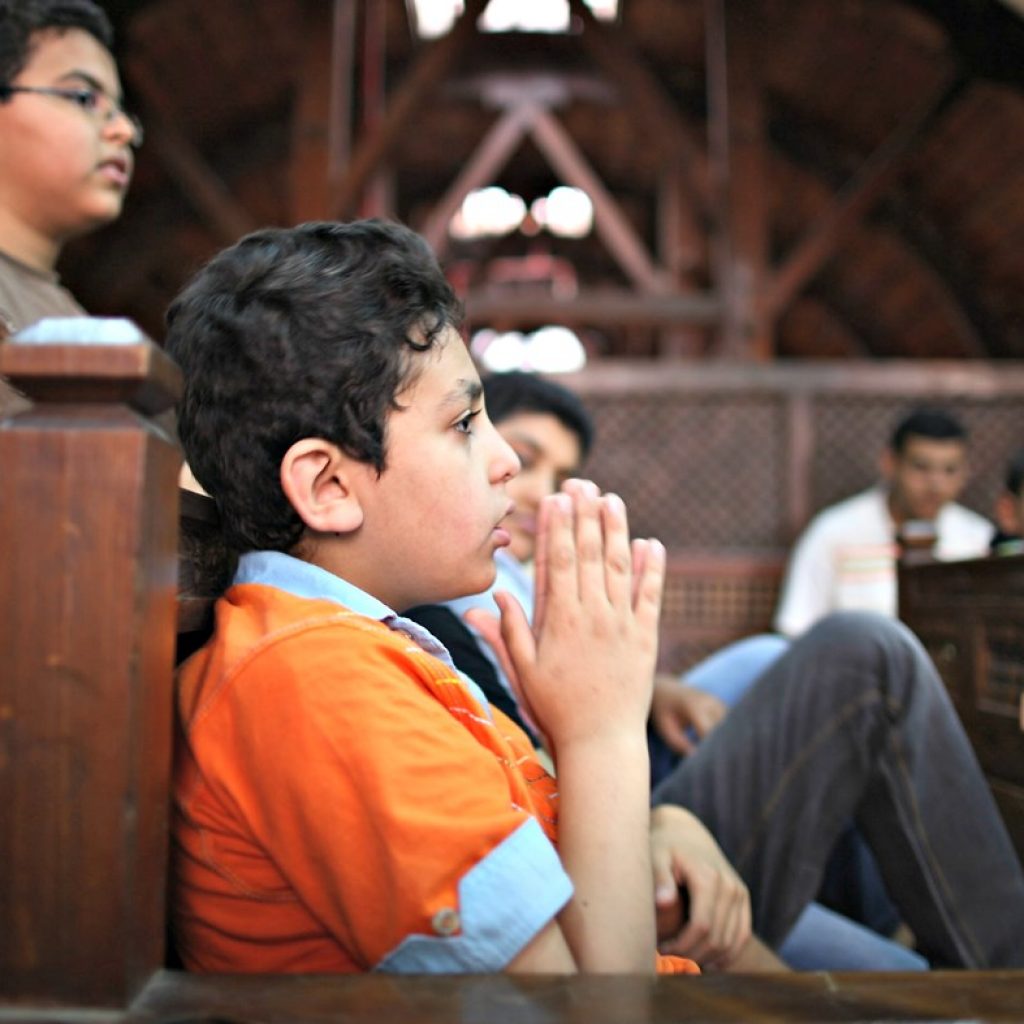By Christianity Today –
Four years ago, Shenouda was an infant found at the door of a Coptic church. Today, renamed Yusuf, the boy is found in a state-run orphanage. In between lies the care of a priest, the devastation of a Christian family, and a sectarian bureaucracy undergoing partial reform.
Egypt is home to a Dickens-like tragedy.
“Adoption is not legal in Egypt,” said Nermien Riad, executive director of Coptic Orphans. “There is no possibility it will happen as known in the Western world.”
The boy’s family name and location have been kept anonymous as a cautionary measure, as reported by the Coptic publication Watani. Likely left by an unwed mother, the child was found by a Coptic priest who presented him to the couple, infertile for 29 years.
They took him into their home, obtained a birth certificate as if he was their own, and raised him with love and devotion. They gave him a Christian-signifying first name, honoring the prior Coptic Orthodox pope, and per Egyptian naming custom the four-generation quadrilateral was completed with the names of the doting father, grandfather, and great-grandfather.
All was idyllic, until a jealous niece realized the impact on her inheritance.

Egypt’s Islamic-based law, seeking to preserve lineage, prohibits taking another’s child as one’s own. The niece reported the couple to the police, who investigated. The prosecution determined there was no blood relation, but also no ill will.
The father signed a paper stating he found the child “on the street,” likely to shield the priest’s involvement. But though the case was dropped last February, the boy was taken to an orphanage. With no papers to prove his ancestry, he was assumed to be a Muslim—and thus forbidden to live with a Christian family—and given the religiously neutral name Yusuf, the Arabic equivalent of Joseph.
The desperate parents protested: What Muslim would leave their unwanted child at a church? Denied, they were even forbidden from visiting him in the orphanage. Their applications for employment at the facility were turned down.
According to the Ministry of Social Solidarity, Egypt has 11,000 children in institutional care. According to a 2016 study by UNICEF, the United Nations agency for children, the total number of Egyptian children with at least one parent dead is 1.2 million.
(..)
Raymond Ibrahim, writing for Coptic Solidarity, was critical. Citing Muslim narratives, he related how the prophet of Islam adopted Zayd, an orphan believed to be the fourth person to accept the faith. But the practice became forbidden when Zayd divorced his wife and Muhammad thereafter married her. Kafala took its place, and precedent was established.
And Christians are among the modern victims.
“The reason Shenouda and his family were targeted is because of their Christian faith,” Ibrahim wrote. “The child—whose background is unknown—was being raised as a Christian, and it is this that has caused the state to act.”
Some critics say the Egyptian government should not have such a right. Article 3 of Egypt’s constitution permits Christians and Jews to govern their own personal status issues—such as marriage, divorce, and inheritance—according to their religious traditions.
“If we subject this matter to the religious concept, adoption is permissible in Christianity, though the opposite in Islam,” said Youssef Talaat, legal advisor for the Protestant Churches of Egypt (PCE). “But the current law does not have articles related to it.”
Talaat represented the PCE alongside the Coptic Orthodox and Catholic churches to present a new unified personal status law before the government. Completed last year, it is expected to be discussed in the upcoming session of parliament, though due to Egypt’s sharia-based prohibition—with kafala as the alternative—adoption (tabenni) is not included within the new text.
Coptic lawyer Naguib Suleiman wants the parliament to amend the proposed family law further, and it is reported some members will lobby to allow adoption for Christians.
Until then, where will orphans go?
“In the absence of a legal framework, civil society organizations have to step in and fill the void,” said Riad. “Our work prevents the Shenouda situation from happening.”
Coptic Orphans, founded in 1988, works in about 800 towns and villages throughout Egypt. Currently serving 9,000 orphans, the organization states it has helped prevent 35,000 children from entering institutionalized care.
A 2017 article in the academic journal Trauma, Violence, and Abuse surveyed 23 studies over 20 years, involving a total of over 13,000 children. Those raised in foster care experienced “consistently better experiences and less problems” than those in orphanages.
As an example, in 2009, American Scientist published research on 136 children in Romania. At 3.5 years, only 18 percent raised institutionally demonstrated secure attachments to their primary caregiver. But 49 percent of those in foster care did so, and 65 percent of those in the general community.
(..)
Yet just as the nation’s Christians once had to skirt the law to build churches until reform occurred, she hopes adoption will become included in the legal revisions. And not just for the rare examples like Shenouda, but for all Coptic children in need of care.
“Families are ‘adopting’ informally already, in the shadows,” Riad said. “If there is legalization for Christians, that would be ideal.”
________________
Abridged from:




